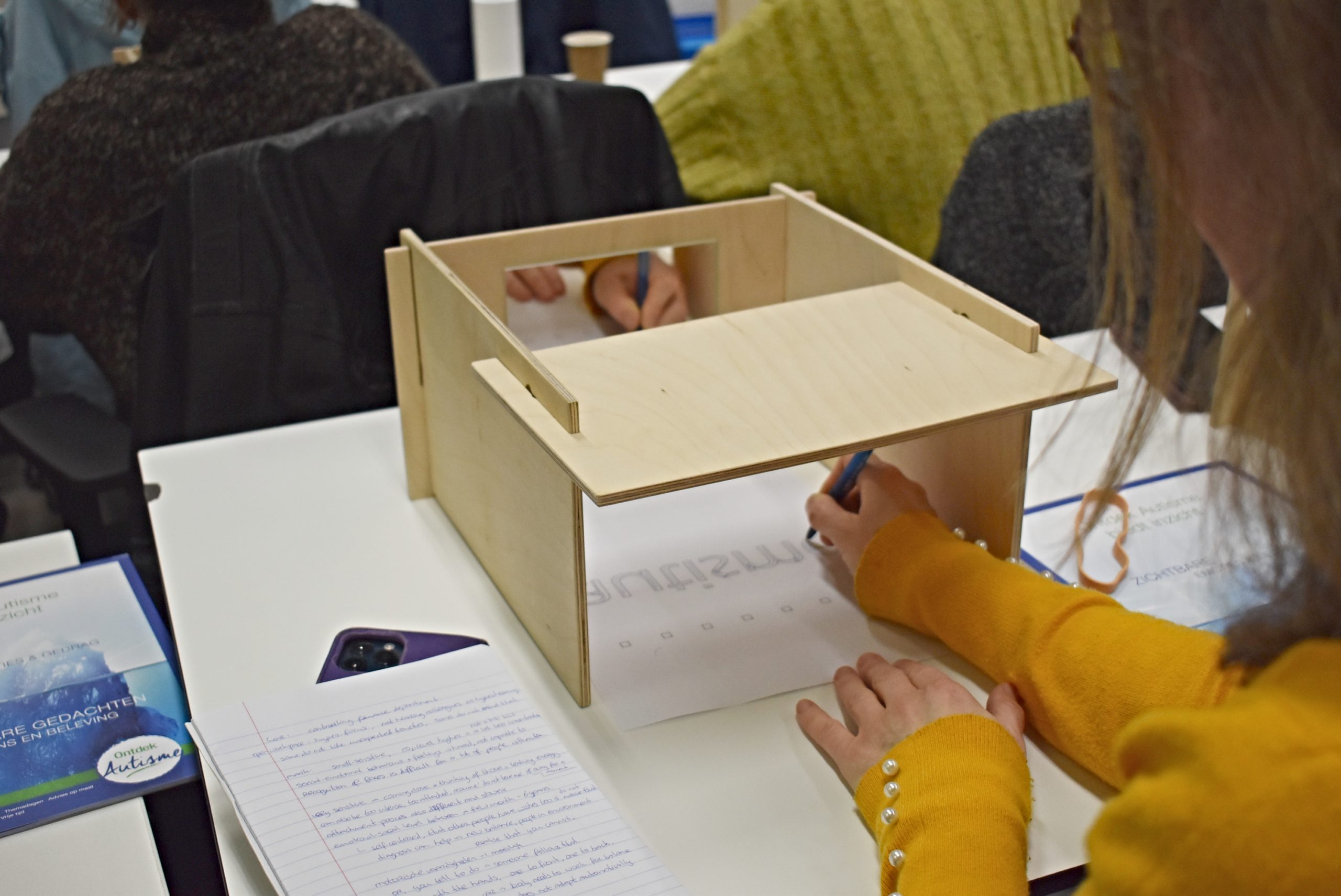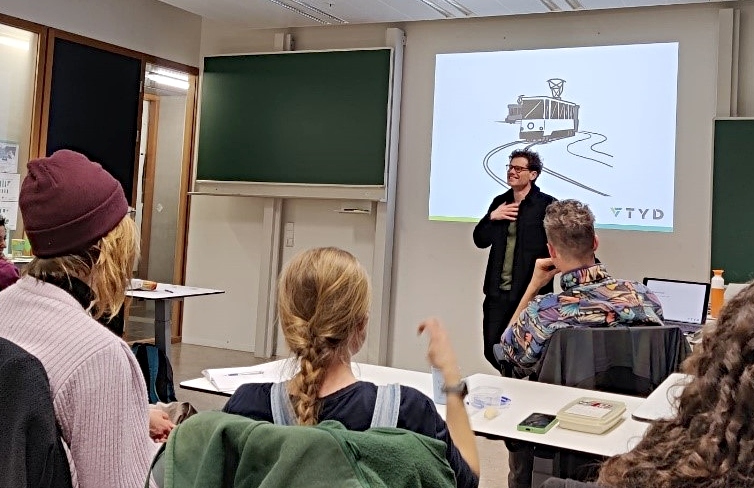‘Something I really hate is wet coats.’ These are the words of Marc Beek, one of the guest speakers at the workshop Inside the Autistic Mind. As part of the One World Week, Spectrum Wageningen (a student platform for diversity) organised this session ‘to delve deeper into neurodiversity and fortify mutual acceptance’.
Resource student editor Sarah Maria Scheid joined the session.
Marc’s words took the audience by surprise. ‘Yes, if the odour of wet coats in a lecture room is too pungent, I simply can’t survive’, he laughs. He is immediately noticeably distracted by a cleaner pushing a cart through the corridor. In contrast to Marc, the second guest Cor Jongejeugd, who also has autism, can work for hours or even days to complete a task without breaking his concentration.
‘My colleagues must touch me if they want something because I fail to recognise signals such as eye contact or movements. I have trouble recognising all sorts of signals’, Cor states. How people with autism experience life varies per person, says organiser and autism coach Jasper Kok-Roosjen. ‘Some people with autism are stuck at the emotional level of a four-year-old child. They continue to have trouble understanding other people’s signals and behaviour, even in adulthood.’
Mirror image
‘I am going to let you experience what it’s like to have autism’, says Jasper, while he hands out pieces of a mirror. The audience is asked to write the word “autism” while looking at their hand in the mirror. A challenging and tiresome task, it turns out. Moreover, it appears easier with the hand that is not normally used for writing. ‘Using the other hand removes the automatism from the task, forcing one to really think, which makes it easier. People with autism experience social and emotional situations in a similar way.’
People with autism have trouble diverging from what they expect or have learned
The next assignment is to do a puzzle consisting of six pieces. The box shows a picture of a woman, while the image on the pieces of the puzzle differs. ‘Turning the pieces over so that you no longer see the image makes it easier’, Jasper says. Cor adds: ‘This removes your expectations from the equation and allows you to focus on the shape of each piece. People with autism have trouble diverging from what they expect or have learned. I took each of my three children to the office as babies because I thought it was a social expectation.’ Marc: ‘It’s a little like being distracted by the cleaner coming down the corridor. I can’t choose to ignore it.’
OWW
There are still One World Week activities today and on Friday. For example, Giftedness and Unconscious (gender)bias; a musical night, WUR-lympics and a Storytelling night.

 Participants are asked to write their name while looking at their hand in the mirror. Photo Sarah Maria Scheid
Participants are asked to write their name while looking at their hand in the mirror. Photo Sarah Maria Scheid 